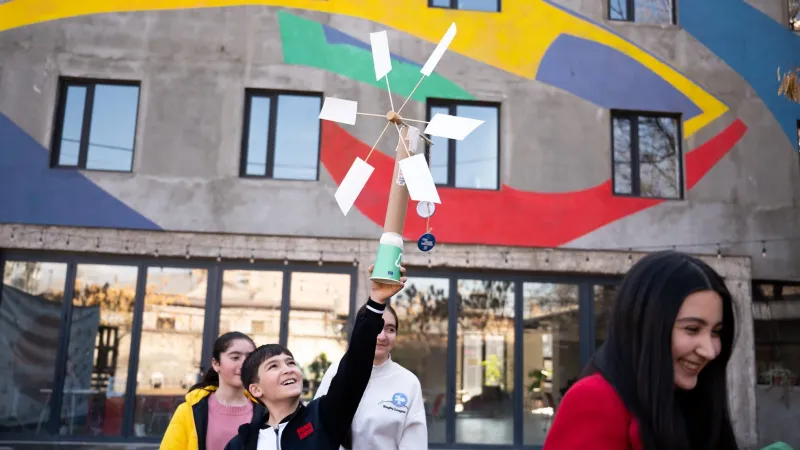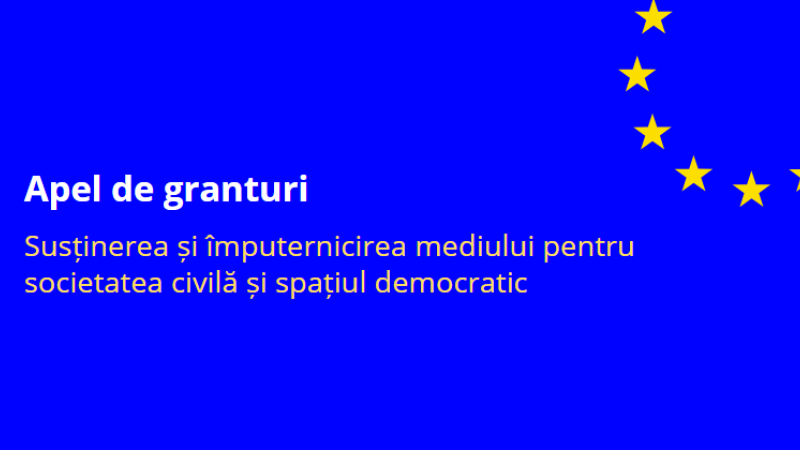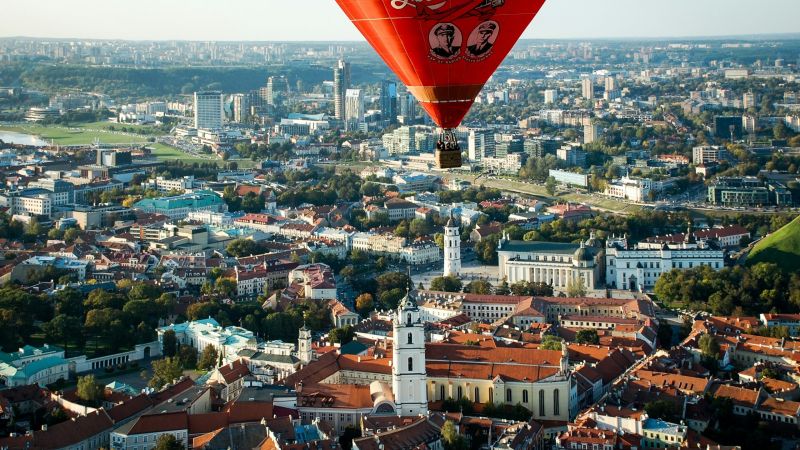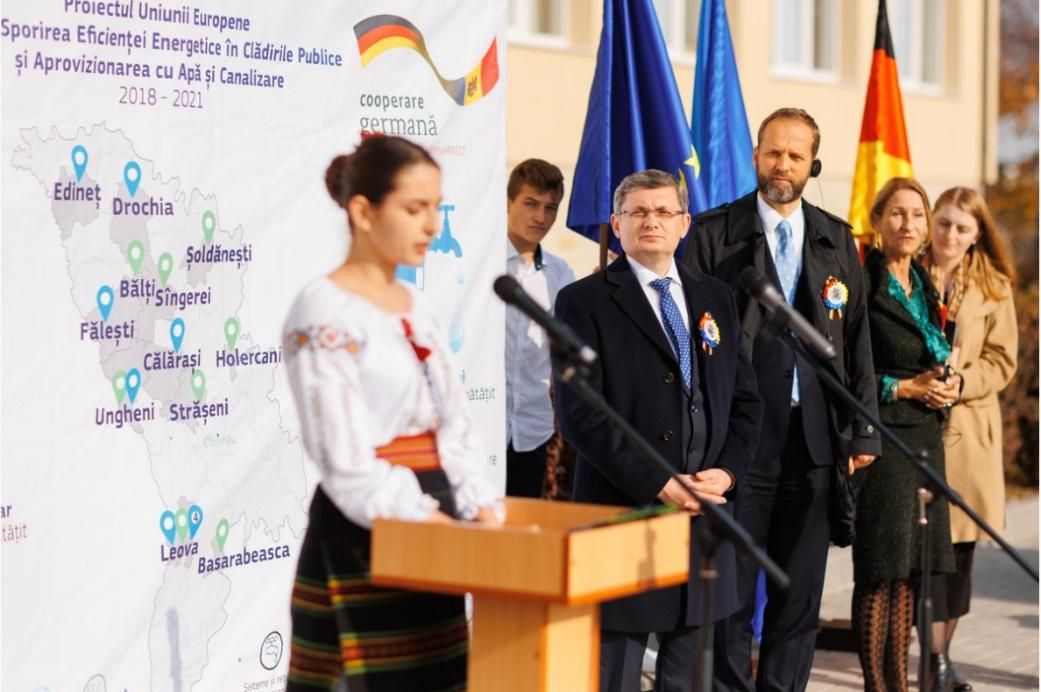
Sprijinul UE și al Germaniei pentru Moldova în îmbunătățirea eficienței energetice în școli și asigurarea accesului la apă și canalizare
Importanța eficienței energetice nu a fost, probabil, niciodată mai clară decât în zilele noastre. Republica Moldova în special se confruntă cu provocări enorme, mai ales în perspectiva iernii care se apropie. Țara este aproape în întregime dependentă de aprovizionarea cu gaze din Rusia și se află într-o criză a gazelor din toamna anului 2021. În acest context, îmbunătățirea eficienței energetice joacă un rol enorm de important în țară. Tocmai aici intervine una dintre multele măsuri ale Uniunii Europene. Pe lângă aceasta, prin măsurile UE se asigură că mai mulți moldoveni să aibă acces la sistemele de apă și canalizare.
Cu un buget total de 39,8 milioane de euro, Uniunea Europeană finanțează proiectul „Construcția infrastructurii de alimentare cu apă și canalizare precum și eficiența energetică în clădiri publice” care este implementat de Agenția de Cooperare Internațională a Germanei (GIZ Moldova) în parteneriat cu Ministerul Infrastructurii și Dezvoltării Regionale a Republicii Moldova. Ca rezultat al acestui proiect, peste 5.000 de elevi, profesori și alt personal se bucură de condiții de educație îmbunătățite și de un mediu de predare confortabil. Datorită măsurilor de eficiență energetică, consumul anual normat de energie și emisiile anuale normate de CO2 au fost reduse. În cadrul măsurilor privind infrastructura de alimentare cu apă și canalizare, peste 100.000 de persoane au acces la apă potabilă fiabilă și la servicii de canalizare centralizate.
În lunile octombrie-decembrie 2022, partenerii de la nivel național, regional și local au sărbătorit patru evenimente de inaugurare pentru cinci proiecte: la Flămînzeni – pe 2 octombrie, la Ungheni – pe 9 noiembrie (pentru două proiecte), la Edineț – pe 23 noiembrie și la Călărași – pe 8 decembrie.
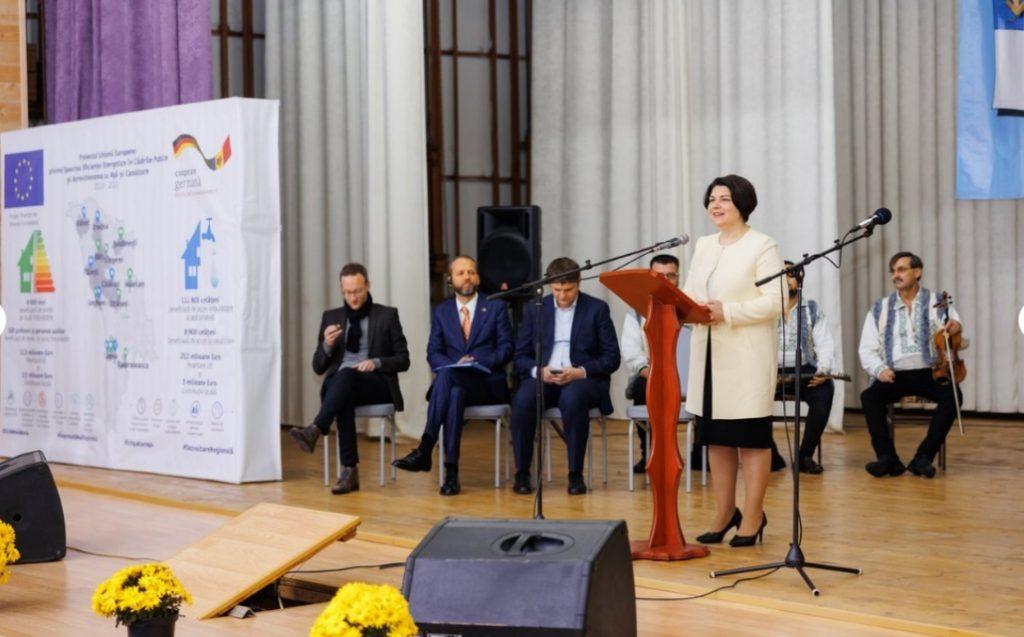
Relevanța acestor evenimente a fost evidențiată de participarea de nivel înalt a prim-ministrei Natalia Gavrilița, a președintelui Parlamentului Republicii Moldova Igor Grosu, a viceprim-ministrului și ministrului infrastructurii și dezvoltării regionale al Republicii Moldova Andrei Spînu, precum și a ambasadorilor Uniunii Europene și Germaniei.
La Flămînzeni, cu ocazia finalizării lucrărilor de renovare și creștere a eficienței energetice în cadrul Gimnaziului „Iurie Boghiu” Igor Grosu, președintele Parlamentului Republicii Moldova a accentuat: „Asigurarea securității energetice este una dintre prioritățile guvernării. Investițiile în eficiența energetică a clădirilor publice vor contribui la diminuarea costurilor pentru resursele energetice. Astfel, vom putea răspunde crizei energetice, dar și provocărilor de mediu, tot mai frecvente din cauza schimbărilor climatice. Proiecte de eficiență energetică sunt realizate, inclusiv cu suportul partenerilor noștri de dezvoltare în zeci de localități ale țării, urmând să se îmbunătățească nivelul de trai a mii de oameni.”
La Edineț, cu ocazia inaugurării proiectului de apă, Natalia Gavrilița, prim-ministra Republicii Moldova a menționat: „Dezvoltarea localităților rurale, reabilitarea drumurilor și a infrastructurii de apă și canalizare se înscriu printre prioritățile Cabinetului pe care-l conduc. Drept exemplu, în acest sens îl constituie proiectul inițiat de Guvern – Satul European, lansat în vara acestui an. Ne dorim ca, peste un an, să asistăm la lansarea celor 500 de proiecte, care se implementează în localitățile selectate prin concurs, și să vedem construite noi sisteme de alimentare cu apă și canalizare, proiecte de iluminat stradal sau parcuri fotovoltaice. Ne dorim să atragem investiții în sate, iar oamenii să aibă locuri de muncă bine plătite, condiții de trai modern și astfel să rămână în țară, acasă, alături de întreaga familie.”
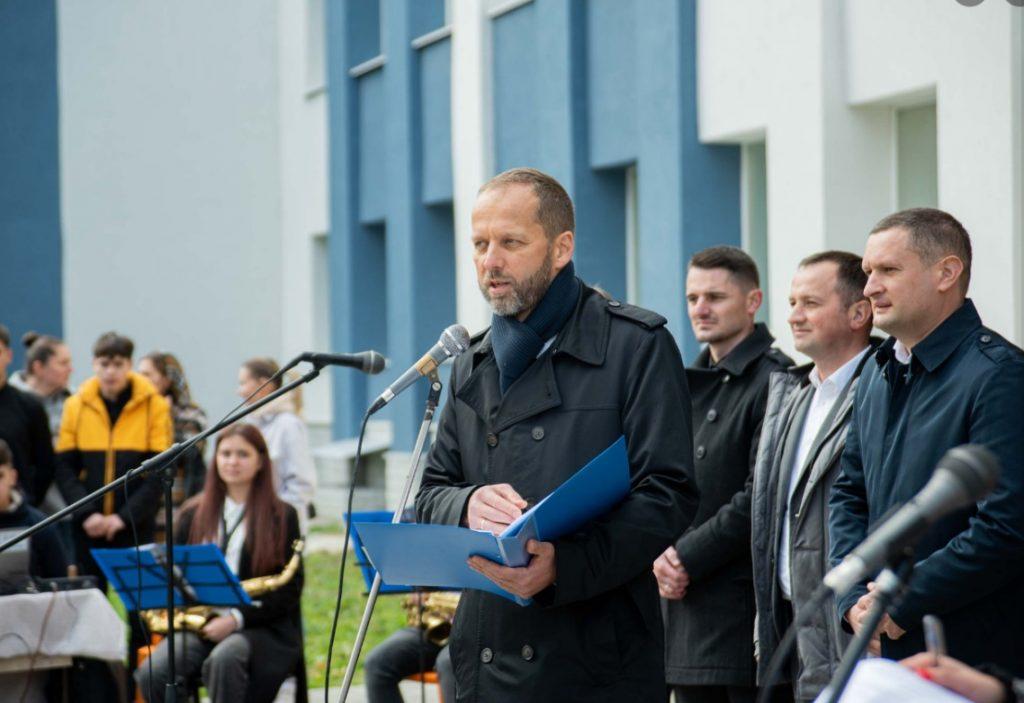
La Ungheni, două proiecte au fost finalizate și sărbătorite în noiembrie. Jānis Mažeiks, Ambasadorul Uniunii Europene în Republica Moldova: „UE a contribuit cu aproape 40 de milioane euro pentru a susține sporirea accesului la servicii publice la nivel local în Republica Moldova, și sunt mândru să văd care sunt rezultatele aici la Ungheni, pentru că investiția în generația tânără este cea mai bună investiție pentru viitor. Mă bucur să constat că eforturile depuse în sporirea eficienței energetice au dat rezultate, și astăzi, Liceului Teoretic „Mihai Eminescu” poate servi drept exemplu pentru alte instituții publice în acest sens. Pe lângă măsurile de eficiență energetică, marcăm astăzi și finalizarea extensiei și reabilitării sistemului de aprovizionare cu apă și canalizare. Ambele proiecte sunt îndreptate spre îmbunătățirea calității vieții oamenilor și protejarea mediului înconjurător, iar UE este alături de Moldova în acest parcurs.”
Lucrările de construcție în cele 8 școli includ, printre altele:
- renovarea acoperișului;
- izolarea pereților exteriori ai clădirii;
- reabilitarea sistemului de încălzire interioară;
- instalarea sistemelor fotovoltaice pentru producerea energiei electrice;
- asigurarea apei calde menajere și
- renovarea veceurilor interioare ale instituției.
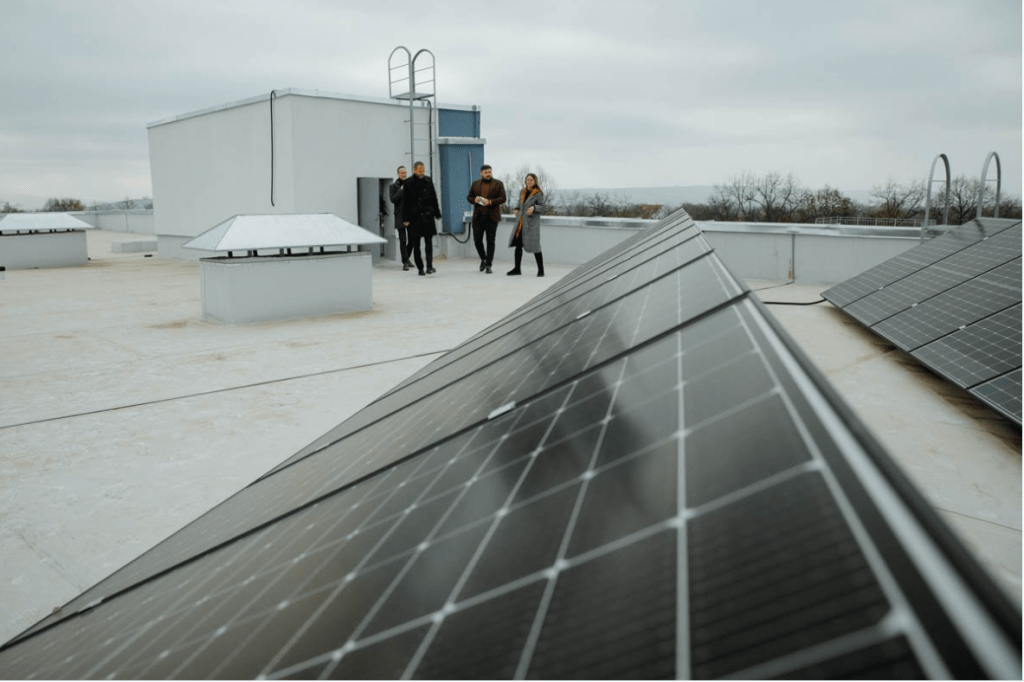
Proiectele de infrastructură finanțate de UE au fost însoțite de măsuri de dezvoltare a capacităților și de măsuri de management al energiei susținute de Guvernul Germaniei, precum și de o gamă largă de lecții privind energia pentru elevi, pentru care profesorii și-au mobilizat eforturile. În colaborare cu Centrul de Formare Continua „Eficiența Energetică a Clădirilor Publice” al Universității Tehnice din Moldova, au fost elaborate, pilotate, instituționalizate și livrate module de instruire. În cooperare cu Camera de Comerț și Industrie, au fost organizate cursuri EUREM / Manager Energetic European.
Lucrările de construcție din cadrul celor 10 proiecte de infrastructură finanțate de UE privind alimentarea cu apă și/sau canalizare au inclus, de exemplu:
- sisteme de rețea de alimentare cu apă îmbunătățite sau extinse;
- Instalarea rezervoarelor de apă;
- îmbunătățirea calității apei potabile;
- infrastructura tehnică reînnoită și
- rețea de canalizare îmbunătățită sau extinsă.
Măsurile de însoțire susținute de Guvernul Germaniei au inclus elaborarea de documente strategice în aprovizionarea cu apă și canalizare și creșterea capacității de serviciu a furnizorilor de apă. Pe lângă aceasta, au fost achiziționate noi echipamente de detectare a scurgerilor pentru îmbunătățirea eficienței tehnice, au fost modernizate laboratoarele de testare a calității apei potabile, iar lucrătorii au primit echipamente și îmbrăcăminte în sprijinul creșterii siguranței muncii.
Ultimele patru inaugurări pentru școlile renovate cu eficiență energetică sporită din municipiul Bălți și orașele Basarabeasca, Leova și Șoldănești vor fi organizate în 2023.
